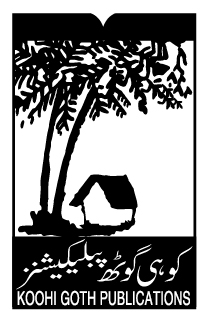

Ethical standards provided by the International Committee of Medical Journal Editors (ICMJE) should be kept in mind for researchers involving human and animal subjects. According to the policy on Protection of Human Subjects and Animals in Research, the corresponding authors are required to submit evidence for the conduct in accordance with the ethical standards of the responsible committee on human experimentation (institutional and national) and with the Helsinki Declaration of the World Medical Association with all current revisions and amendments. The authors may be asked to submit ethical approval. The institutional review board must be mentioned in the manuscript. The manuscript should clearly indicate the process of attaining consent from the subjects.
When reporting experiments on animals, authors should indicate whether the institutional and national guidelines for the care and use of laboratory animals were followed.
The clinical trials must be registered via www.clinicaltrials.gov or a similar agency that follows ICMJE criteria prior to patient enrollment in the study. Trials conducted with the objective to determine only the pharmacokinetics of a certain drug are exempted.
Images of the human subjects is included in the manuscript to be published in Pakistan Journal of Ethics must be given with a clear statement confirming that the patient was informed prior to the inclusion of images in the manuscript and informed consent was taken. Confidentiality must be maintained and the patient identity must not be disclosed. The editors are eligible to ask the author to provide a consent form and in any case, if the authors will be unable to explain and provide the evidence records the images will be removed from the manuscript without further notice to the author.
Articles submitted to the journal are first internally evaluated by the editorial team and if any such article appears for which the editors have a concern, that the submitted paper has material that is indicative of misconduct in research, publication and that may affect the journal policies on ethical grounds. The assigned editor is recommended to discuss the case with the board members and other associates of the ethical committee upon the Chief Editor’s recommendation. The manuscript can be rejected if the issue is not resolved and the author fails to justify it.
All authors of a single manuscript of Pakistan Journal of Ethics do not require to communicate with the journal editor. The copyright form is sent to the corresponding author. The corresponding author is responsible for all sort of communication between the journal and all other co-authors of the submitted manuscript before and after publication. By signing the copyright statement the authors declare that they have agreed to the current authorship sequence and the affiliations mentioned are correct and approved the manuscript submission to the Pakistan Journal of Ethics. Authors are suggested to report all sorts of alterations before publication. For changes in the authorship sequence, the addition or deletion of authors from the list requires an approval statement from each author including the author to be added or removed.
Competing Interests
Authors submitting a manuscript to the Pakistan Journal of Ethics are requested to disclose all competing interests either financial or non-financial at the time of submission. These competing interests might undermine the originality of the work submitted and manipulates the author's contribution towards data presentation, analysis, and explanation. For this purpose, the corresponding author is held responsible to submit a statement regarding conflicts of interest in the manuscript on behalf of all the co-authors.
The plagiarized manuscript that is presented with large copy-pasted data is inappropriate and would not be considered for publication in the Pakistan Journal of Ethics. The process of publication will be stopped if any article under process in the Pakistan Journal of Ethics is identified as having plagiarism. The authors will be given a fair chance to explain and justify their actions. In case of an unsatisfactory response, the article will be withdrawn. The notice of such withdrawal will be published online immediately and in the next issue of the printed version of the journal.
Material under consideration in the Pakistan Journal of Ethics must be original. It should not be submitted elsewhere for publication unless the corresponding author is provided with a rejection letter for the respective manuscript. We greatly encourage publishing a part of work from Ph.D. or thesis in the Pakistan Journal of Ethics.



Koohi Goth Publications (KGP), a publication directorate established by Malir University of Science and Technology, is committed to becoming a prominent publisher of innovative open access journals and books. With a focus on producing quality content from a diverse set of authors and researchers, KGP follows international scientific standards to ensure the excellence of its publications. Through its Research and Technical Development department, KGP is actively involved in various publications aimed at disseminating and supporting the academic publishing ecosystem. The organization publishes scholarly journals, books, and digital resources in the health and social sciences, with a team of esteemed experts serving on the editorial board to cater to the scientific and research community. KGP is dedicated to promoting inclusivity by encouraging submissions from developing and underdeveloped countries, thereby bridging the education and science gap worldwide. Our objective is to create diverse and inclusive journals that deepen the understanding of the research communities we serve. As a responsible organization, KGP promotes responsible and ethical practices to ensure a bright future for the scientific community.
